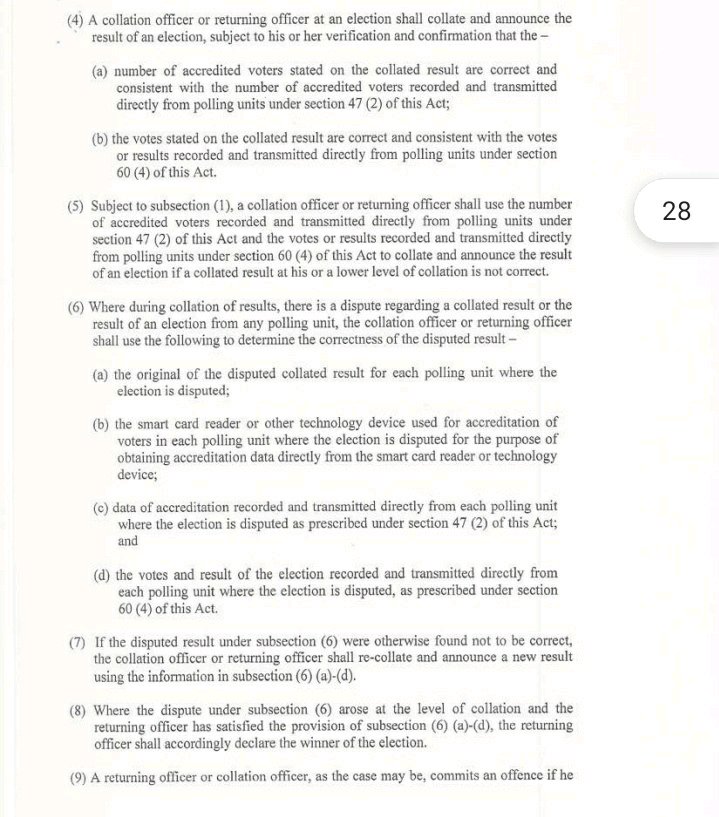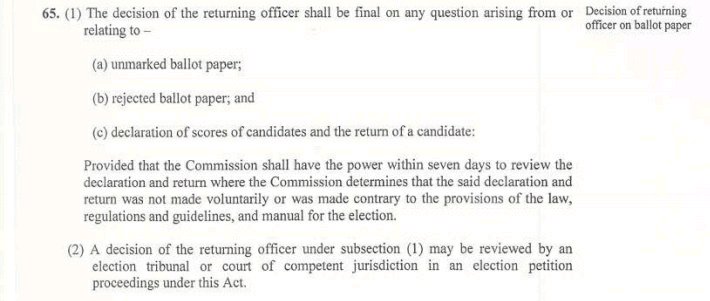
There is a yet to be fully disclosed political drama happening in Adamawa State. The governorship election which started on March 18 could not be completed because of inability of the electoral umpire, Independent National Electoral Commission (INEC) to successfully conclude the governorship election in some polling units whose cumulative number of registered voters exceed the margin with which the potential winner of the poll was winning. Hence, the election was declared inconclusive.
However before the election was declared inconclusive, the incumbent governor and the Peoples Democratic Party (PDP) governorship candidate, Ahmadu Fintiri, was in the lead with 421,524 votes as against 390,275 votes recorded by the first runner up, Binani.
INEC resume the election yesterday, Saturday March 15th and the collation of the result commenced after the votes cast.
The state Returning Officer, Prof. Mohammed Mele, suspended the collation of results yesterday and postpone it till 11am on Sunday. Not still clear though, the Adamawa state Resident Electoral Commissioner (REC), Barrister Hudu Yunusa, was said to have been allegedly lead by some of the State Security apparatus into the same collation centre around 9am on Sunday and declared Binani the winner of the election.
Action and Inaction in the Poll
Although it could be argued that the REC’s decision to declare the election result was a direct contravention of Sections 64 and 65 of the Electoral Act 2022 and Part 3 of the INEC guidelines which vests the power to declare results on a Returning Officer appointed by INEC but it would be weak, incoherent and illegal to be partial with the rule of law.
It might have been a norm for the Returing Officer to be the one announcing winners of elections in the past, the Electoral Act 2022, as amended does not solely vested the power to make declaration on the Returning Officer.
Section 64 subsection (4), (5), (6), (7), (8) and (9) of Part III of the electoral act kept saying “a returning officer or collation officer” has the power to do the task we generally consider to be a sole responsibility of the Returning Officer.

Yes, we might have considered this as a norm for its predominant occurrences but it could be challenged because there are many Collation officers at the Collation centre and the constitution empowers anyone of them to perform the task of collation of result, announcement of results and returning of a winner.
To affirm this stance, Section 65 subsection (1) points to the Returning Officer of having “sole” responsibility of resolving issues that may arise from the collation and/or returning of a winner in an election.
Put this into consideration, if the power to return a winner in an election is not vested on other collation officers than the Returning Officer why will the returning officer be picked to review his decision?
To finalize this argument, we may look at Section 65, Subsection (2) where Tribunal Court or any court of competent jurisdiction is pointed to, with the sole responsibility of overturning decision of a Returning Officer in case of Section 65, Subsection (1) where a collation officer or returning officer’s action is considered a subject to litigation by any party in the election.

Think deep about this, because the Returning Officer has been, predominantly but not solely empowered to do so, a bouncing results and returning a winner of an election in Nigeria, the only venue to challenge such decision has been the Tribunal as highlighted by Section 65, subsection (2).
Nevertheless, the happening in Adamawa State might not have reached a conclusion but there is a point that the winner of the governorship election for now is Binani until a report of the review by the committee to be headed by the Returning Officer states otherwise.
•Culled from Daily Trust











